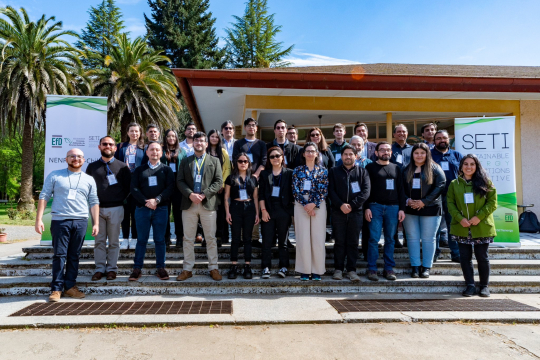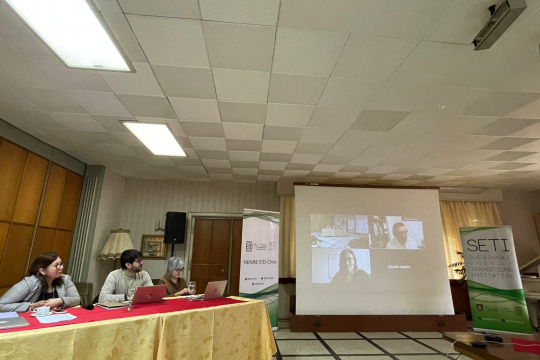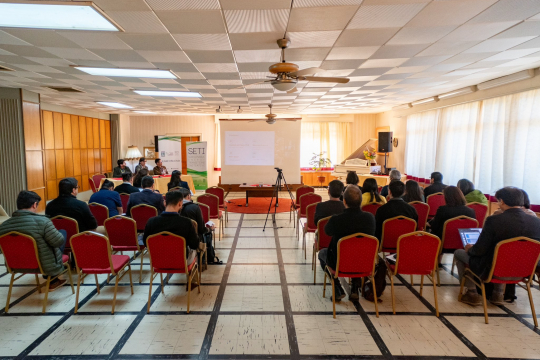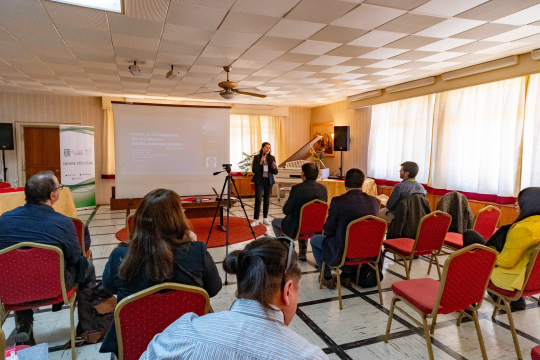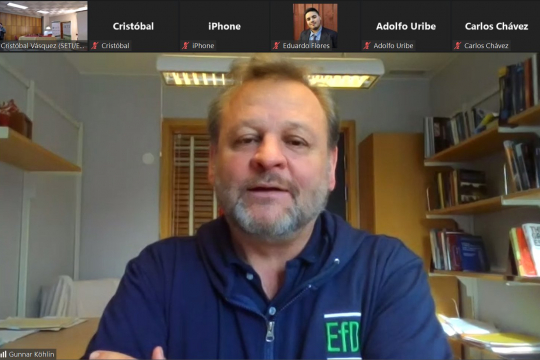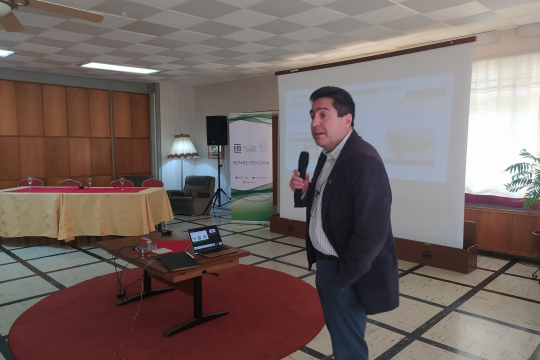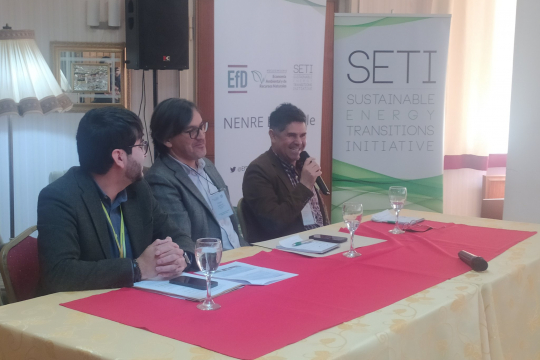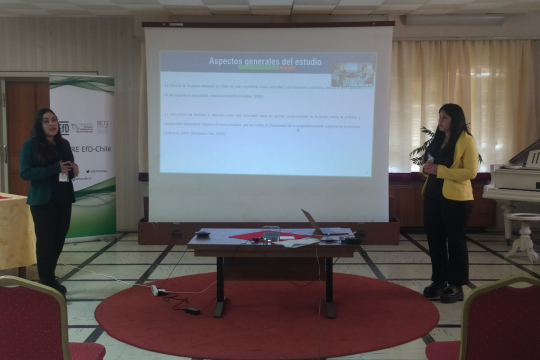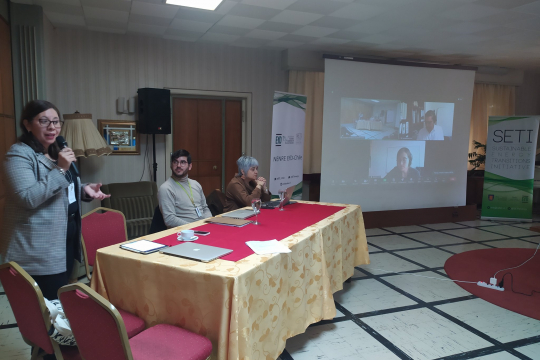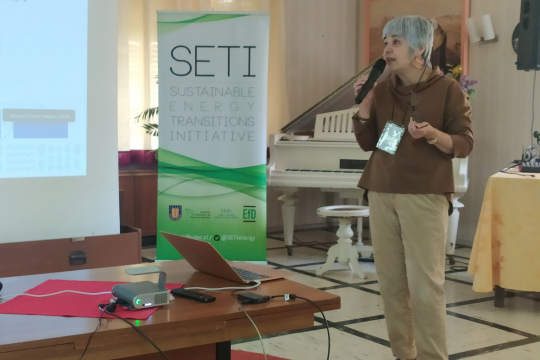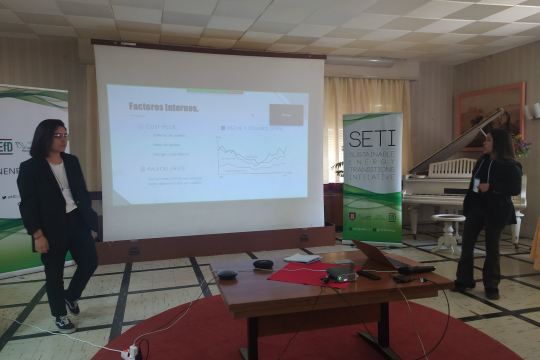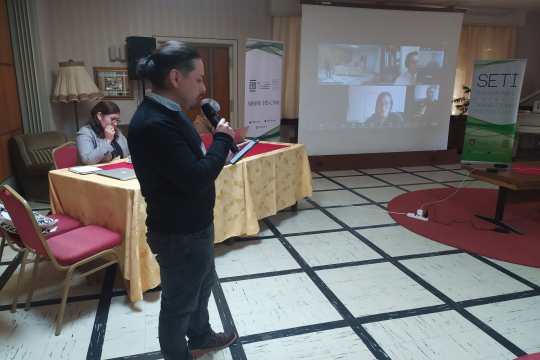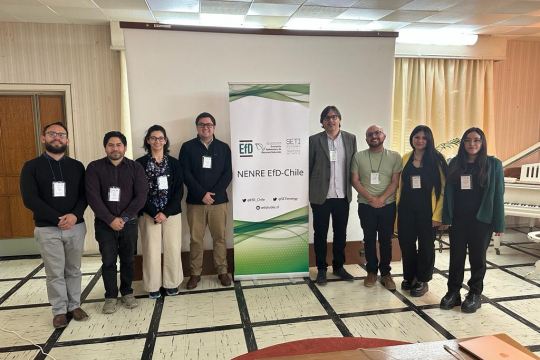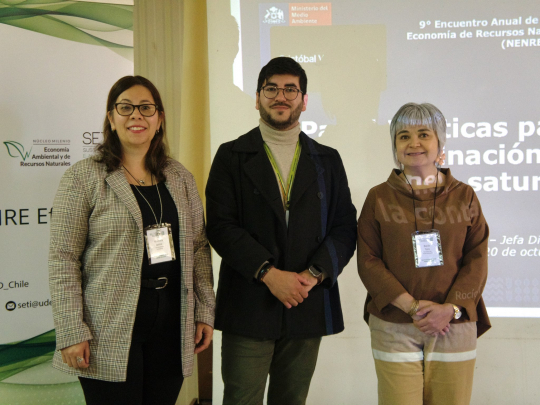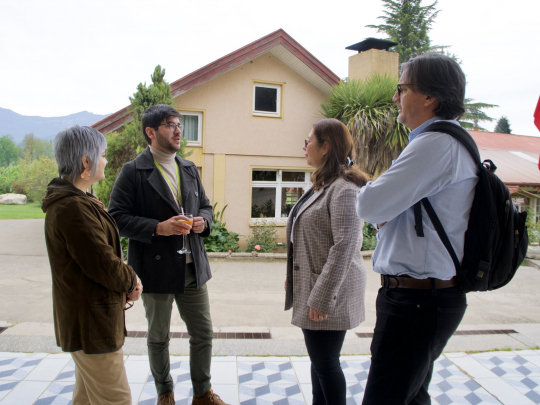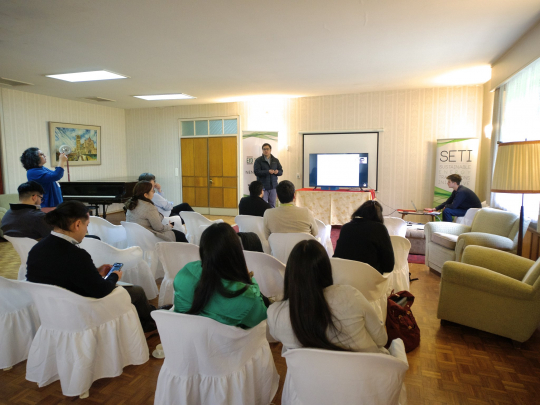EfD Chile hosted its Ninth Annual Meeting in Villa Baviera Parral, Chile, where researchers, policymakers, and students converged on October 19 and 20 to tackle various pressing environmental issues.
The workshop encompassed public policy sessions, addressing critical topics, such as strategies for reducing air pollution and organic waste management in Chile. Participants engaged in discussions that offered valuable insights into the latest updates, obstacles, and challenges in these domains.
The meeting hosted an array of simultaneous sessions on public policy and research advancement. These sessions covered innovative programs designed to combat air pollution in highly contaminated areas, the multifaceted nature of organic waste management, issues related to odor pollution, the aquaculture industry, effective waste collection systems, multidimensional poverty analysis, agricultural climate adaptation strategies, the connection between wildfires and human health, and engaging student research presentations.
In addition, the event featured two Formation of Advanced Human Capital sessions, where students couldshowcase their research projects and get valuable feedback. Three undergraduate student-led studies showed exceptional quality, setting them apart from their peers who had already embarked on postgraduate programs.
Policymakers address waste management
Prominent public officials attended the event, including Pablo Fernandois from the Waste Management at the Ministry of the Environment, Daniela Caimanque, Head of the Odors section at the Ministry of the Environment, and Eduardo Schleef, the SEREMI of the Ministry of the Environment in the Araucanía region in Southern Chile, among others.
Eduardo Peña, Head of the Department of the Environment at the Municipality of Futaleufú, emphasized that research gives a clearer understanding of the environmental situation, leading to effective policy measures tailored to specific geographical areas.
Mario Rivas, SEREMI of the Ministry of the Environment in Ñuble, Central Chile, highlighted the Ñuble Circular initiative, which comprises educational programs, environmental training scholarships, and the distribution of compost bins to homes. This initiative aims to foster active citizen involvement in environmental conservation through a circular economy. Mario Rivas also stressed the importance of collaborating with universities and EfD-affiliated researchers to identify and address environmental challenges through well-informed public policies.
Air quality and energy poverty: priorities for the Chilean government
Rocío Toro, the Head of Air Quality at the Ministry of the Environment, shared insights into the fruitful collaboration with EfD researchers, which initially stemmed from a heater replacement program. She emphasized the role of public engagement in addressing the pollution caused by the widespread use of firewood and advocated participation in heater replacement and thermal insulation programs to mitigate these effects.
Rocío Toro shed also talked about energy poverty. The inability to maintain adequate temperatures in a home due to limited access to fuel or inefficient equipment affects vulnerable households the most. She stressed the “importance of motivating researchers to engage with issues and challenges that concern the population and to facilitate the development of solutions that benefit and effectively serve the public.”
By Belén Pulgar
